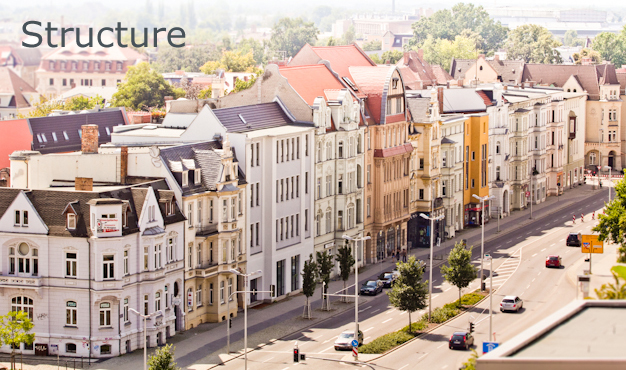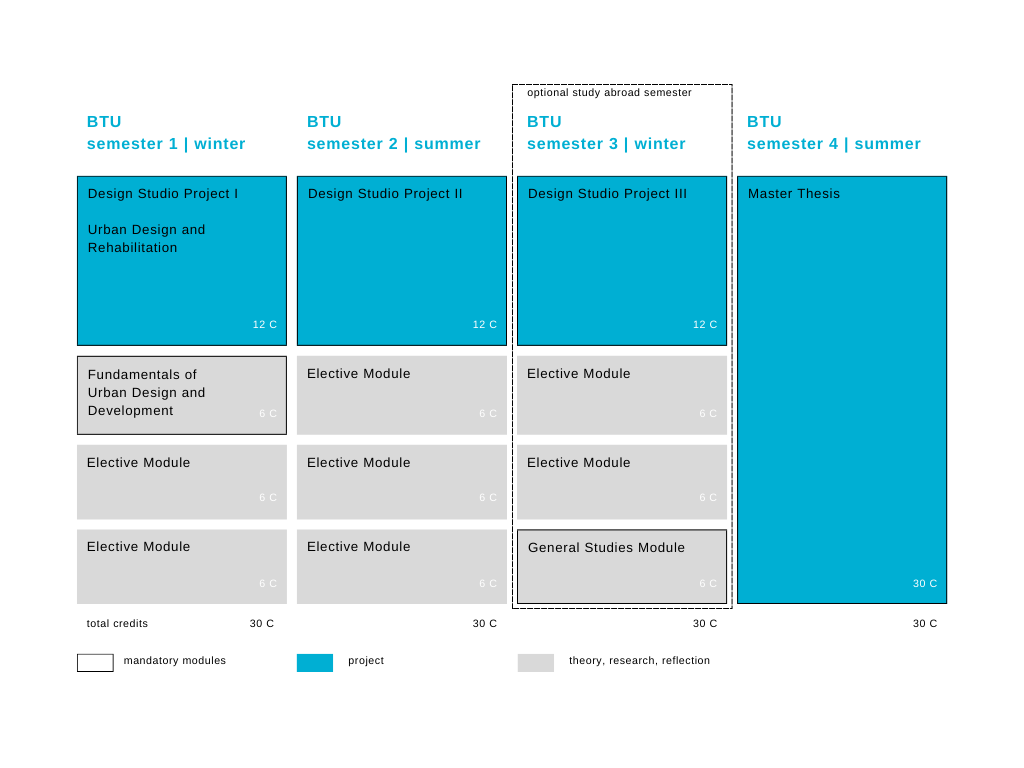
Standard Structure
In the standard option of the Urban Design and Sustainable Revitalization Master programme, students embark on an engaging educational journey spread over four semesters. The initial three semesters are dedicated to comprehensive coursework. Throughout this period, students have the unique opportunity to pursue a study abroad experience at one of our partner universities (including Alexandria University and Cairo University), enriching their learning with diverse perspectives and cultural insights. In the fourth semester, dedicated to the Master Thesis, students will continue their studies at BTU, focusing on their research under the guidance of faculty professors. This flexible structure empowers students to customize their educational path to their individual goals while fostering valuable international collaboration and cross-cultural exchange. Upon successful completion of the programme, students achive a Master of Science degree from BTU Cottbus – Senftenberg.
For more information about the structure of the Double Degree option, please follow this link.
Curriculum
The curriculum is designed to be interdisciplinary. Projects, which are a key component of the programme, promote practical and research-based learning, deepening understanding of the complex challenges and methods of urban design and planning. These projects enhance communication, teamwork, creativity, and research skills. Projects are offered in the form of design projects, with the programme director organizing the project offerings presented to students at the beginning of each semester. Three compulsory projects, each with 12 credit points (ECTS), form the main focus and methodological basis of the curriculum. The main components include, but are not limited to, urban design and rehabilitation, urban development and architecture in historic/exiting contexts.

